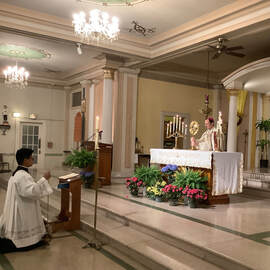 When praying for Dorothy Day to be officially recognized as a saint in the Catholic Church, an immediate objection comes from Dorothy herself. “What I remember her most saying is ‘Don’t make me a saint!’” said Jim Eder, temporary director of the Soup Kitchen at St. Thomas of Canterbury church, speaking of his acquaintance with the woman who co-founded the Catholic Worker movement in the U.S. “So here we are.” “Here” was St. Thomas of Canterbury church following a holy hour of prayer for Dorothy Day’s canonization. This included sung Vespers by the Canons Regular of St. John Cantius, Eucharistic adoration, and preaching from Bishop Mark Bartosic. Prayer was followed by a soup supper in the church basement and a panel discussion on the past, present and future of the Catholic Worker movement co-founded by Dorothy Day. She was an activist, journalist, author and convert to Catholicism, and the Catholic Worker movement she helped launch offered a radical vision of societal renewal based on the Gospel and the Catholic Church’s social teaching. Mark Franzen, director of St. Gregory’s Hall, served as moderator for the discussion. The other panelists with Eder were Sean Domencic, co-founder and director of Tradistae, a Catholic Worker apostolate dedicated to promoting Catholic Social Teaching, and Daniel Delapava, who currently lives at St. Francis Catholic Worker House in Uptown, just a couple blocks south of St. Thomas. That Catholic Worker House is closely linked to St. Thomas of Canterbury church, which is part of Mary, Mother of God parish. The soup kitchen at the parish was launched by Catholic Workers at St. Francis out of the basement at St. Thomas. Many people who had lived at St. Francis Catholic Worker House during the soup kitchen’s early years were in attendance: Denise Plunkett, who lived at the house from 1979 to 1983, Bob Chaps, who was at St. Francis during the late 1970s, and Jim Eder, who was approached with the idea of the soup kitchen when he lived at St. Francis and immediately wrote it off as “a dumb idea.” In a short time, Eder would find himself temporary director of said soup kitchen, which began operations out of the St. Thomas basement in 1978 and serves people to this day. All the panelists had had their lives changed by Dorothy Day and the Catholic Worker movement that carries on her legacy. Delapava came to the U.S. from Colombia in 1997 and was asked to help a Catholic Worker house on the South Side of Chicago that was transitioning to offering hospitality to Latino families who were homeless, he explained. These were typically women with multiple children, and Delapava served as something of a “cultural translator” there for about five years. He then moved to St. Francis Catholic Worker House, stayed there for several years, and then returned to Colombia from 2012 to 2016. When he returned to Chicago, he found himself drawn back into the Catholic Worker’s orbit; Delapava now lives at St. Francis Catholic Worker House, which offers hospitality to single people experiencing homelessness. Domencic encountered Dorothy Day through Catholic social teaching; though he “was born and raised Catholic,” he had not come across Catholic social teaching until a friend introduced him to it in college. “It kind of blew me away and really changed the course of my life in many ways,” Domencic said. “And as I was diving into Catholic social teaching and what it meant for my life in the world, I found Dorothy Day’s name kept coming up.” That led to him and his wife beginning their marriage in a Catholic Worker house, where they still live; he is also a member of the Dorothy Day Guild, which supports the cause of Dorothy Day’s canonization. For Domencic, Dorothy Day’s connection to Catholic social teaching is essential to understanding the Catholic Worker movement. The principles of Catholic social teaching apply the Gospel to all fields of life – politics, economics and culture, to name a few – and they apply to all Catholics. This is why, Domencic believes, Dorothy was so resistant to being called a saint. “We definitely have a common tendency to say ‘Oh, that person's a saint, that's very nice, that's wonderful, I'll pray to them. But I won't necessarily be called to do the same thing. It's something to comfort me, not necessarily something to challenge me.’ I think that’s something Dorothy was always trying to recognize, to call people to conversion,” Domencic said. “In many ways, the work of the Catholic Worker is simply the work of Catholicism.” For Eder, one of the most resonant aspects of the Catholic Worker movement came from its other co-founder, Peter Maurin. His call was for Catholic Workers to live like the poor, to truly share the life of the poor while providing hospitality to them. This certainly was the dynamic for many years at St. Francis Catholic Worker House, in the Uptown neighborhood of Chicago – for many years a melting pot of a huge number of people, many of whom were struggling with poverty, mental illness, substance use, gang violence, or a combination of all four. Delapava pointed out that this form of radical solidarity, of being not just with but of the poor, puts into action the principle that all Catholics are called to live out. Dorothy Day, he pointed out, came from a Communist background, a life of struggles with workers on streets and in union strikes, and she brought into the Church what was good in that mode of being. “I have been thinking about the similarity of mission for the Church … that is very clear with Dorothy,” he said. “[A mission] of radical solidarity with people that somehow reflects the solidarity of Jesus Christ for the whole creation in the cross.”
0 Comments
Leave a Reply. |
Archives
June 2024
CategoriesAll Canterbury House Catechesis Of The Good Shepherd Intellectual Life News Profiles Sacred Art Sacred Music |
|
|
|
|
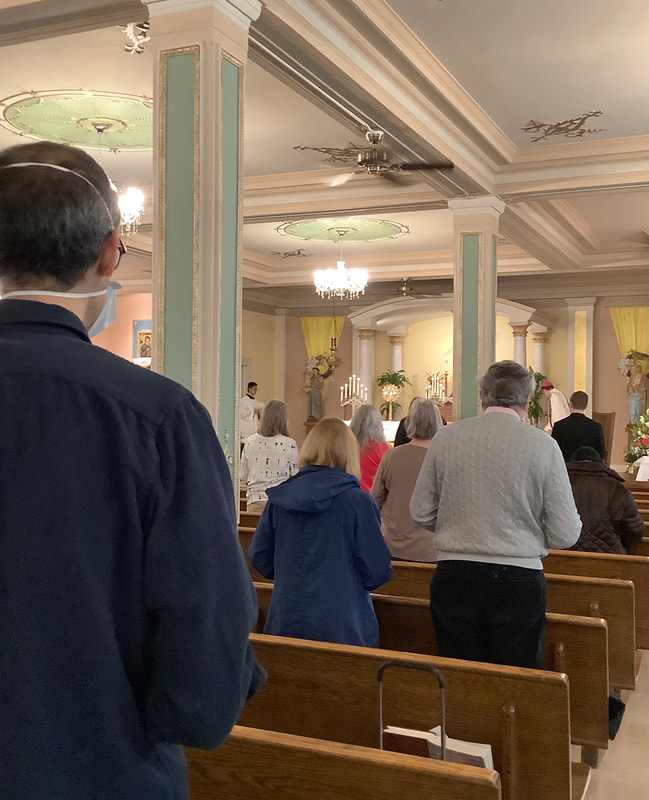
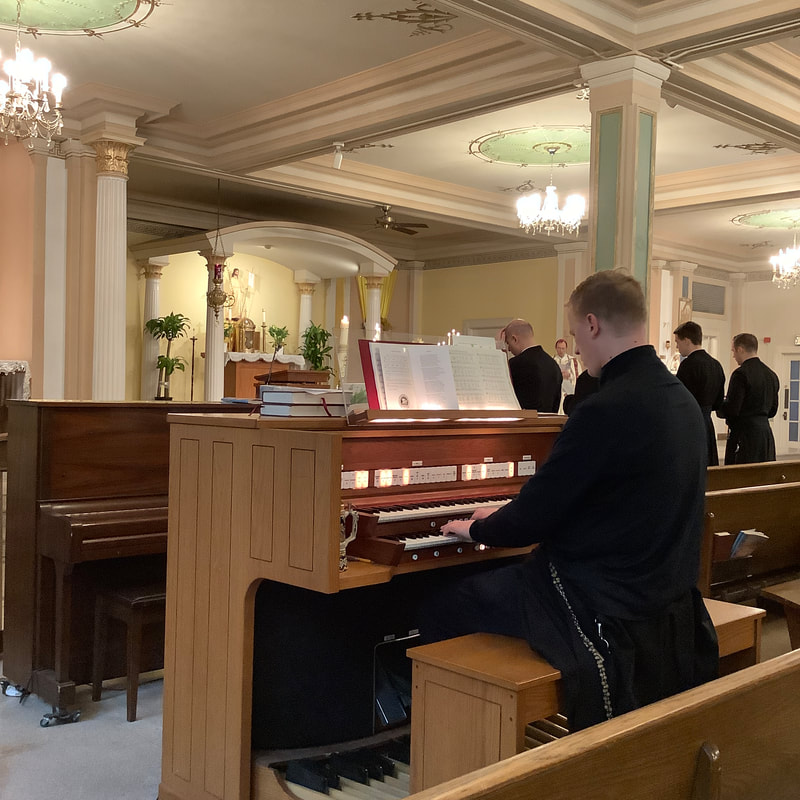
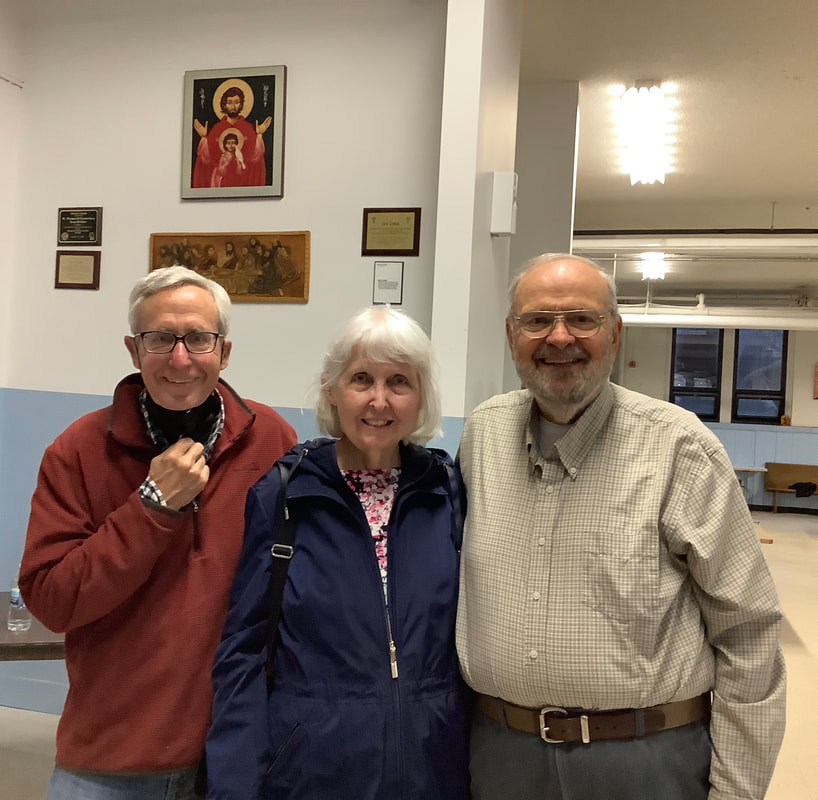
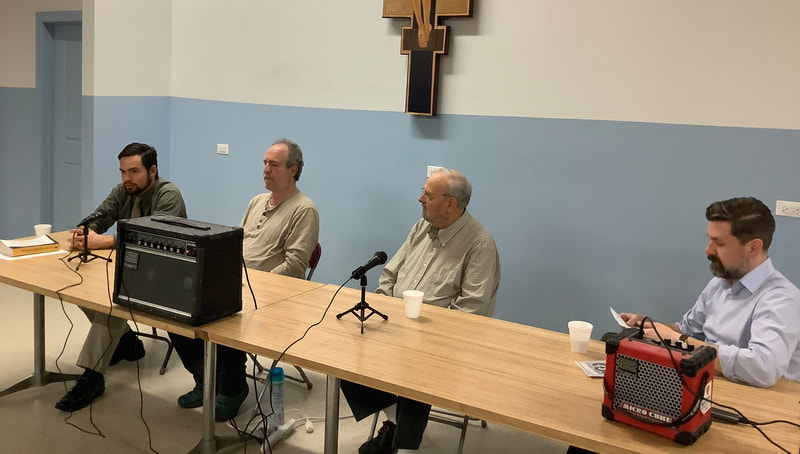
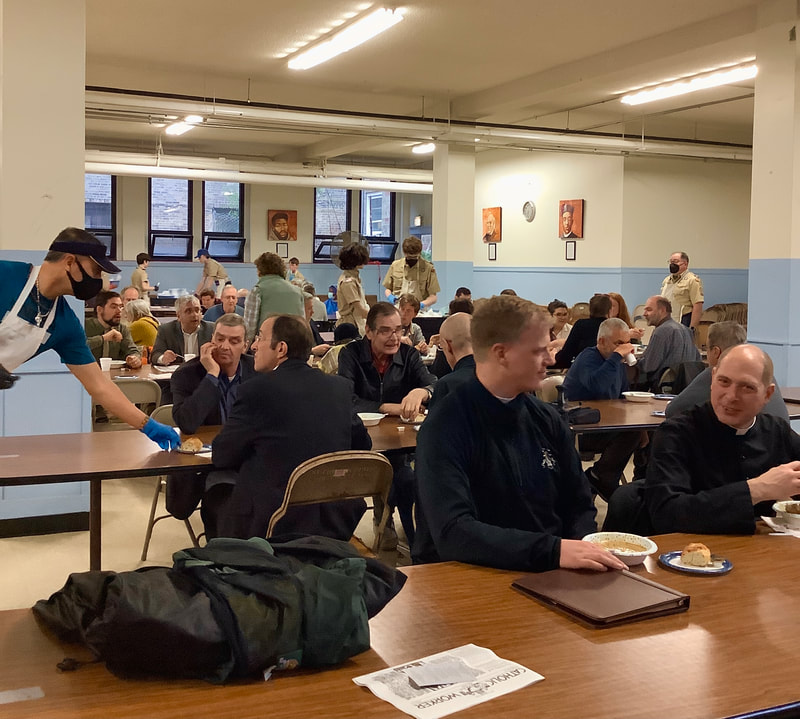
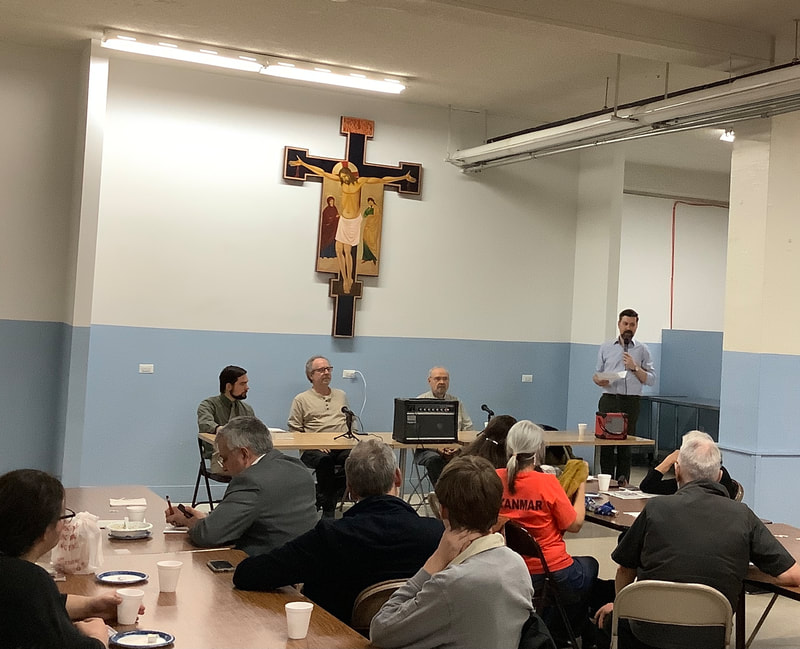
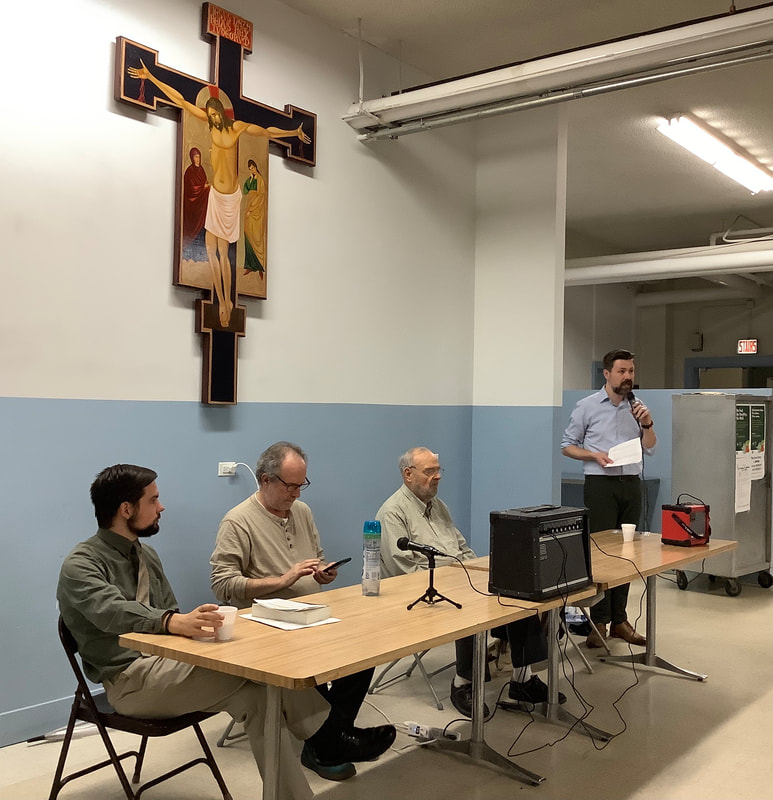
 RSS Feed
RSS Feed
